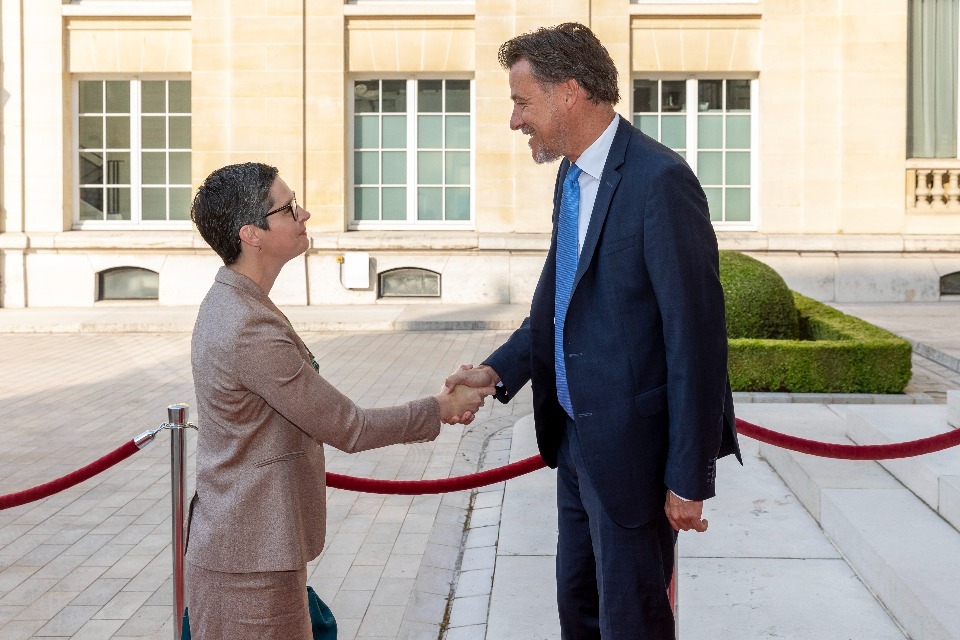Scotland’s census: Population grows to record high of 5,436,600 | UK News

Scotland’s population has risen to a record 5,436,600, the latest census has revealed.
It is the highest ever recorded by Scotland’s census and is a rise of 141,200 (2.7%) since the previous one in 2011.
The National Records of Scotland (NRS) said the results from the 2022 census show a slower rate of growth than between 2001 and 2011, when the population grew by 233,400 (4.6%).
The NRS said that without migration, Scotland’s population would have fallen by about 49,800 since 2011.
The other UK censuses showed higher rates of population growth than in Scotland. The population increased by 6.3% in England and Wales, and by 5.1% in Northern Ireland between 2011 and 2021.
There are now 1,091,000 aged 65 and over in Scotland – a 22.5% increase since 2011 – and 832,300 under the age of 15.
As context highlighting Scotland’s ageing population, the NRS said the 1971 census showed there were twice as many people under the age of 15 than over 65, and in 2011 the two age groups were of a broadly similar size.
On census day there were 2,509,300 households with at least one usual resident. This is a rise of 136,500 (5.8%) from the 2011 census.
The increase in the number of households (5.8%) is higher than the increase in the population (2.7%).
The NRS said older people are more likely to live alone or in smaller households, noting a related trend towards smaller households and more households overall.
Across Scotland, the population increased in 17 council areas between 2011 and 2022, with 10 areas seeing decreases and five seeing minimal change.
Most of the council areas in the Central Belt saw increases in their populations, particularly those around Edinburgh. These increases were driven by migration from within Scotland and from elsewhere.
Midlothian saw the largest increase (up 16.1%), while the Western Isles (Na h-Eileanan Siar) saw the biggest decrease (down 5.5%).
The census is usually carried out every 10 years and asks people to answer questions about themselves, their household and their home to build a detailed snapshot of society.
The results aim to help organisations make decisions on planning and funding public services such as healthcare, education and transport.
Janet Egdell, NRS chief executive, said: “This is an exciting milestone for Scotland’s census and the results paint a fascinating picture of how Scotland and our communities are changing.
“Census data is vital for planning health services, education and transport and the information published through our results will help local and central government, businesses and charities to shape Scotland for years to come.”
Read more from Sky News:
NHS waiting list hits record high
Earth is exceeding ‘safe operating space for humanity’, study says
NRS will publish further results from the census from spring 2024 onwards.
In summer 2024, a series of topic data reports will provide new and unique insights into the characteristics of Scotland’s people, including information on ethnicity, religion, the labour market, education and housing.
For the first time, it will also include data on Armed Forces veterans, sexual orientation and trans status or history.
Click to subscribe to ClimateCast with Tom Heap wherever you get your podcasts
Constitution, external affairs and culture secretary Angus Robertson said: “Today’s publication represents a historic moment with the largest population ever recorded by Scotland’s census of 5.4 million.
“It also confirms this growth has been driven by inward migration, demonstrating that Scotland is an attractive place to come to live and work.”
Mr Robertson stated that Scotland faces an “ongoing population challenge” with fewer births than deaths registered since 2011.
He added: “The census also shows that, in line with many other countries, our population is ageing. Understanding these changes in the population will allow local authorities and the government to adapt vital public services to better meet the needs of those living and working in Scotland – including our large, established migrant community, whose contribution we greatly welcome.”
The Scottish government has pledged to publish an Addressing Depopulation Action Plan and will also introduce a Talent Attraction and Migration Service to support more people to live and work in Scotland.
Mr Robertson added: “The census also shows a trend towards smaller households and more households overall, which further demonstrates the importance of our strategy to tackle social isolation and loneliness through stronger social connections, and our continued funding for organisations working to address this issue.”



